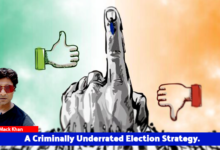
Alexander ‘The Great’! yes, cudos. How many have ever thought that his greatness slaughtered more lives than Adolf Hitler. Rapes, murders, whole civilizations burnt up and Alexander ‘The Great’.
Oh , Alexander is so old let’s catch up something inspirational, hmm let’s say the success story of Mc Donald? McDonalds opened in 1955. Since then they are proud to advertise that 247 billion beef burgers have been sold. On the web are many sites analyzing this, and there we find that they can get 2024 burgers from a cow. 247 billion divided by 2024 = a total of 122 million cows slaughtered so far! Since the last 5 years, McDonalds boasts of serving over 5 billion burgers per year. That makes 25 million cows per year! Or 67,680 cows per day!!
Animal slaughter equals Social Unrest.The UN and US Fed Chair Bernanke back it up.
( Courtesy– Subhavilasa das ACBSP, 24-02-2011.
And yes sir all that comes at a steep cost to the environment: the more than 53m metric tons of greenhouse gas McDonald’s produced in 2019 exceeds several European nations’ emissions.
So coming to the topic History is often considered the cornerstone of our understanding of the past, shaping our present and guiding us toward the future. However, it is vital to acknowledge that history itself has been susceptible to manipulation throughout human civilization. Winners write the history. If the Kauravas had won the Mahabharata, Shakuni would have been prayed like Krishna today.
From deliberate omissions to distorted narratives, the effects of manipulated history can have far-reaching consequences on society, altering our perceptions, values, and overall worldview. In this blog, we delve into the unsettling reality of manipulated history and its profound impact on our collective consciousness.
The concept can be called the Narrative Control. Historical accounts serve as a crucial tool for shaping and reinforcing societal norms, beliefs, and ideologies. Throughout history, governments, ruling elites, and powerful interest groups have sought to control the narrative to maintain their authority or advance their agendas. This manipulation often involves cherry-picking events, omitting certain perspectives, or emphasizing specific aspects of history that fit their narrative. By shaping the historical narrative, those in power can influence public opinion and maintain control over the social and political landscape.
Manipulated history plays a significant role in fostering a sense of collective cultural identity and nationalism. Many nations construct their history based on certain narratives to bolster patriotism and a sense of unity among citizens. However, this often involves downplaying or erasing uncomfortable truths, such as colonial atrocities, ethnic conflicts, or past injustices. Manipulated historical accounts breed a distorted sense of national pride, perpetuating a distorted understanding of our collective past. Such funded historical writers have been instrumental in perpetuating stereotypes and prejudices against certain races, religions, or communities. By deliberately distorting historical events, cultures, or identities, manipulators feed into existing biases, reinforcing negative perceptions. This distortion creates a breeding ground for division, mistrust, and discrimination, hindering true understanding, empathy, and social progress. Hitler’s Mein Kamph is the most prominent example of the consequences we are talking about.
One positive aspect of uncovering manipulated history is the opportunity to unearth hidden stories and voices long ignored or silenced. Through tireless research, individuals and organizations strive to challenge the mainstream narrative and shed light on marginalized perspectives. This process of uncovering truth becomes instrumental in correcting historical injustices and giving a voice to historically oppressed communities. It allows us to strive for a more inclusive and accurate understanding of our shared history.
The discovery and exposure of manipulated history should serve as a catalyst for nurturing critical thinking skills among individuals. By questioning the narratives presented to us, we can become more discerning consumers of information. It is our responsibility to scrutinize sources, seek multiple perspectives, and engage in objective analysis. Developing critical thinking skills empowers individuals to resist the manipulative tactics employed by those who seek to control history and encourages a more informed and enlightened society.
So to conclude manipulated history is a dark stain on the fabric of our collective understanding. It shapes our societies, influences our perceptions, and perpetuates biases, stereotypes, and inequalities. However, through awareness, rigorous research, and the promotion of critical thinking, we can begin to dismantle these manipulation tactics. It is essential to embrace a multifaceted view of history, one that acknowledges multiple perspectives and seeks to correct the injustices of the past. By doing so, we can begin to build a society grounded in truth, empathy, and a genuine commitment to a fair and inclusive future.





